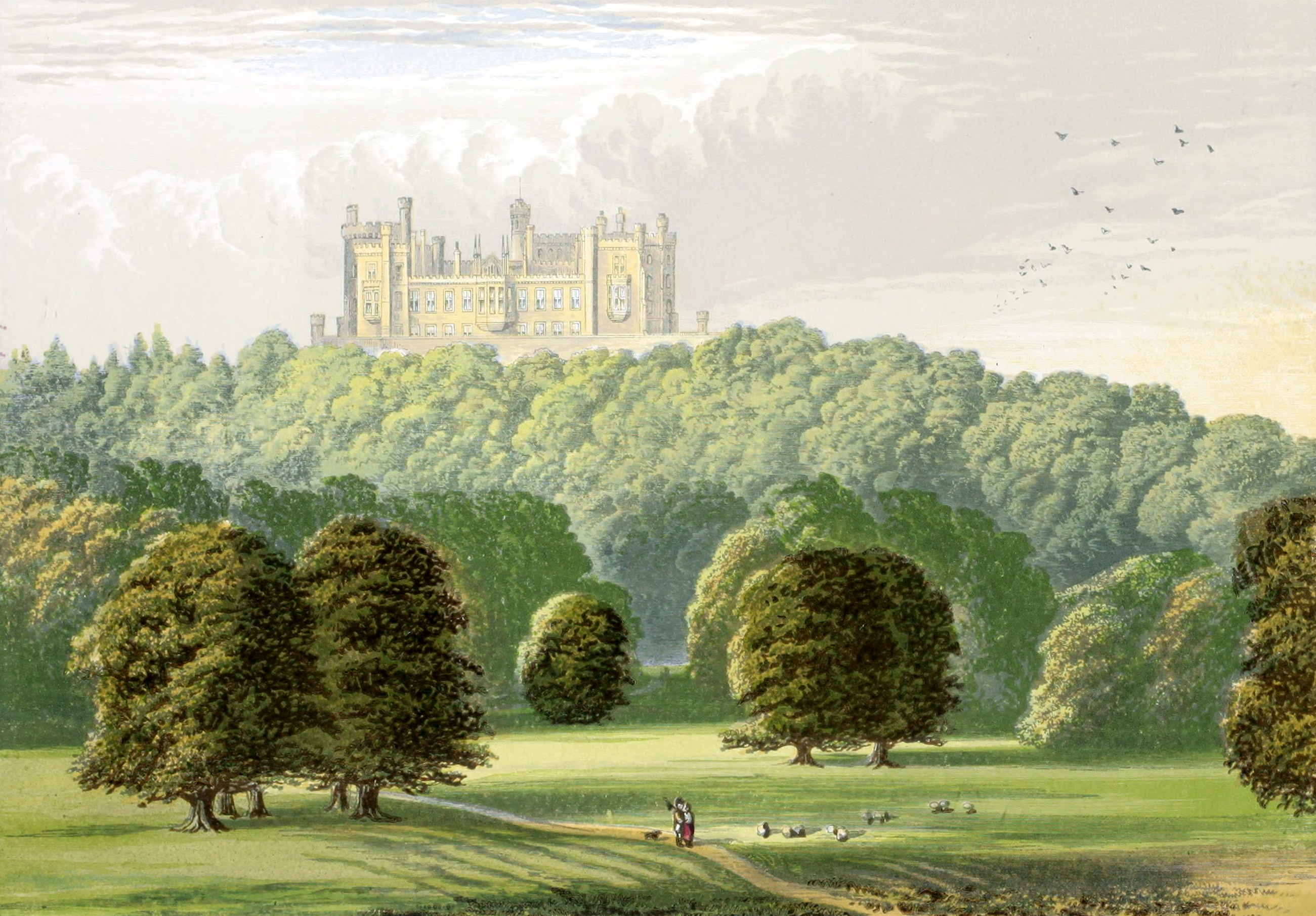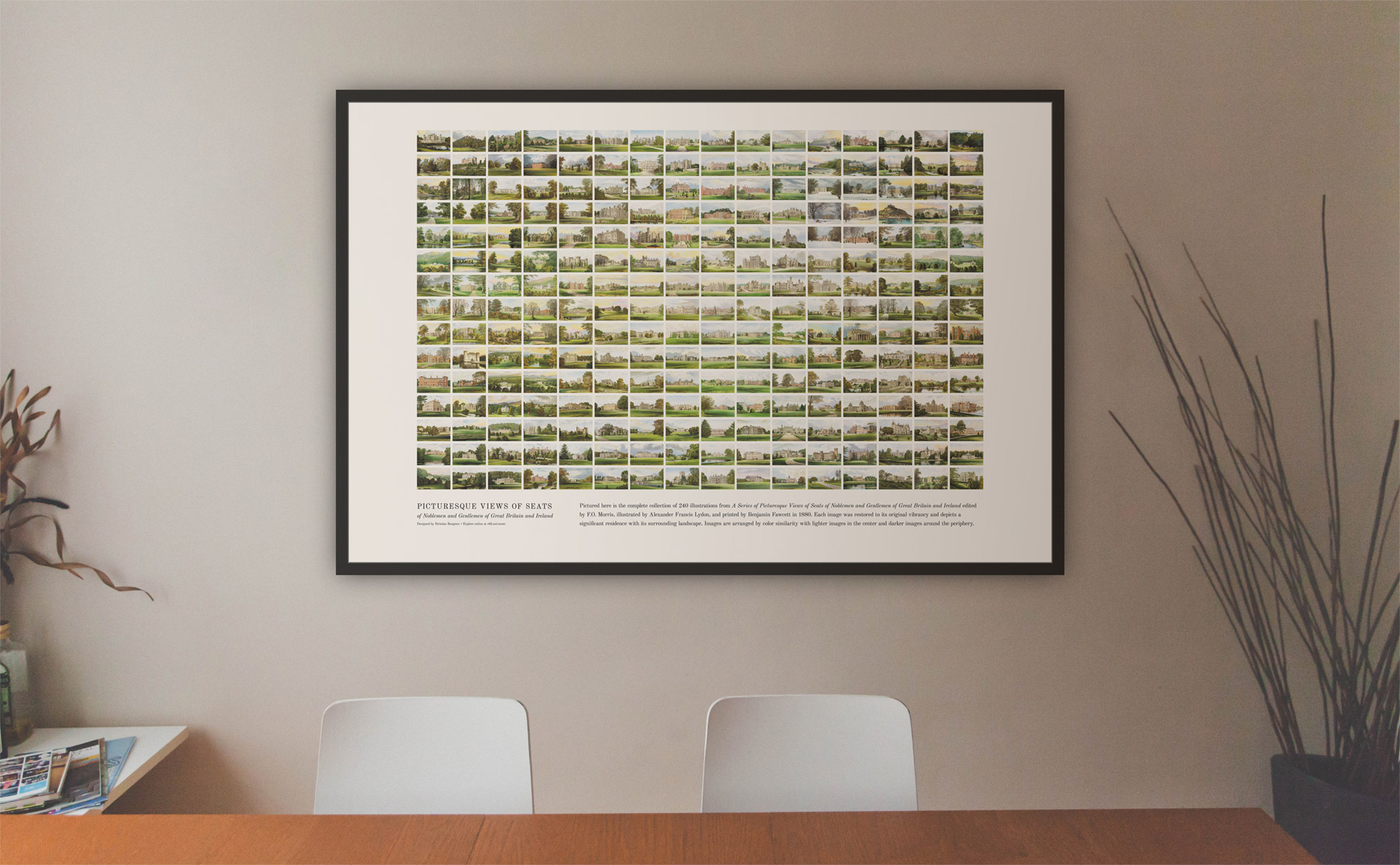Belvoir Castle.
Leicestershire, Near Grantham, Lincolnshire.—Duke of Rutland.
Robert de Todeni, Standard-bearer to the Conqueror, was the original grantee of Belvoir, and erected a Norman fortress on the site of the present castle. His successors assumed the name of
Albini, and from them the place passed by descent to the family of
Lord Ros, of Hamlake, whose eventual heiress,
Eleanor de Ros, conveyed it by marriage to
Sir Robert Manners, M.P., ancestor of the Earls and Dukes of Rutland and of Lord de Ros.
I cannot do better than transcribe the following account of the princely mansion
of Belvoir:—
“It would be long to tell the various mutations that Belvoir Castle underwent
before the erection of the present stately edifice. In the feudal times, in the Wars of the Roses, and in the troubled times of Charles L, it was frequently garrisoned; its commanding military position naturally rendering it a station of great importance. At the commencement of the present century, successive attempts at modernizing had nearly reduced the style and character of the castle to that of an ordinary hall. When the present noble Duke came to his majority one of his first objects was the rebuilding the castle of his ancestors, or rather, restoring it to its appropriate character. At an outlay of £200,000 this great work had nearly been completed in 1816, when, on the 26th. of October in that year, a fire broke out, which reduced the magnificent structure to a blackened ruin. Portions, however, of the castle escaped the devouring element, as the south-west and the south-east fronts, and the beautiful chapel. At the time of this conflagration the castle contained collections of works of art and vertû that could scarcely be surpassed by any private mansion in Europe. Many valuable pictures by the old masters were consumed, and much of the costly furniture destroyed.
To this brief sketch of the castle it is right to add some description of its accessories. At a short distance are the faint traces of the ruins of the Benedictine Priory of Belvoir, founded temp. Gi. Conquestoris. Below the castle rock begin romantic walks, leading through groves and thickets to the delightful pleasure-grounds. These grounds with all their appropriate adjuncts of statue, grotto, fountain, and bower, may be said to have been the creation of the late Duchess, to whose fine and exquisite taste they appear to be consecrated. A pillar, standing on her favourite spot, bears a touching poetic tribute to her loveliness and worth. A gentle ascent from this charming pleasaunce leads to the family mausoleum, in which her earthly remains repose.
Mention ought to be made of the imposing effect which the castle has when viewed from any portion of the adjoining domain. In this it greatly surpasses Windsor. The rich masses of wood that flank it, its more numerous towers, and its more commanding site, combine indeed to give it a proud pre-eminence over all other English castles.
Belvoir Castle forms the subject of a remarkable Pindaric ode of great length, first printed in 1690, and reprinted in Nichols’ ‘Leicestershire.’ It also forms the theme of a Latin poem of great merit, entitled ‘Arx Belvoirina,’ in a collection of the poems of Louth school by the Rev. Andrew Burnaby. The poet Crabbe, who held the neighbouring living of Muston, has also celebrated the castle and its inmates in his nervous strains.”
The family of the Duke of Rutland derives from Sir Robert de Manners, Knight, ancestor of Sir Robert de Manners, Knight, living in the reign of Edward the Second.
Location
- Approximate vantage point
- Main building
Unique posters
Decorate your walls with a complete collection.
Illustrations have been compiled into unique displays of similarity, sets, maps, and more.

